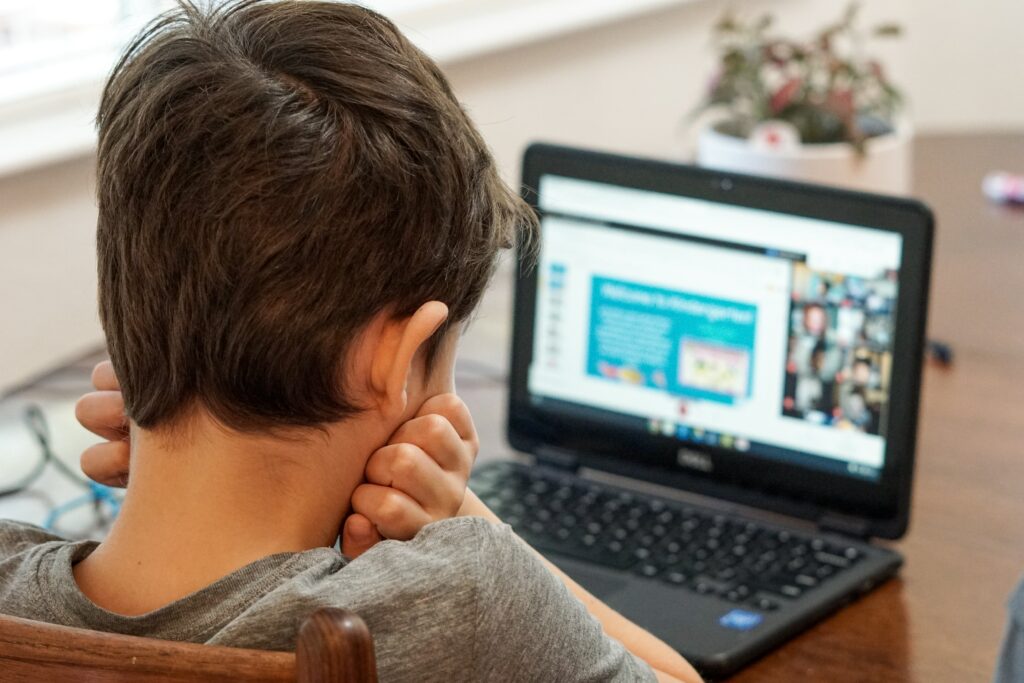Whether students are zooming or in classrooms, they need to learn American history
Jeffrey Sikkenga
August 9, 2021

This op-ed was originally published in USA Today.
As America’s students head back to school, there are a lot of questions on people’s minds. Will school be online again? Will students return in person? Or will we see some sort of hybrid? People want to know how their students will learn.
But we also need to be concerned about what they will learn, especially in American history and civics. Our country’s future is shaped by what the next generation of citizens knows and believes about our country’s past, the values past generations bequeathed to the present, and our ability to create an even-better future.
The classroom shapes our citizens
Yet, over the last few decades, history and government have too often been pushed aside in K-12 education by federal government testing requirements in reading and math and by a great focus on STEM (science, technology, engineering, and mathematics) education.
Is it any wonder, then, that the latest National Assessment of Educational Progress (NAEP) tests in U.S. history and civics – given in 2018 to thousands of American eighth graders – showed that only 24% of students performed at or above the “proficient” level in civics and an anemic 15% exhibited a satisfactory knowledge and understanding of American history?
The problem doesn’t end there. When students do study America, it is increasingly through the lens of the country’s faults and sins. Is it also any wonder, then, that a recent Gallup poll found that only a quarter of young adults (26%) say they are “extremely proud” to be an American?
More significant, perhaps, is the gap between the patriotic pride of younger adults (those 18 to 34) and older adults – likely reflecting the de-emphasis and politicization of civic education. “Younger Americans are much less likely than their older peers to express pride in the country,” Gallup reported, noting that in past years “there were only modest age differences.”
So, what should we do? First, we need to devote more time in school to helping students learn not only the facts of American history and government but also the story of it. When they know the purposes and principles of America (the “why”), they care about the facts (the “what”).
They need to understand that at its core, the story of America is our continuing struggle to live up to the Founding Principles proclaimed in the Declaration of Independence and embodied in the Constitution: that all human beings “are created equal”; that they are all “endowed by their Creator with certain unalienable rights”; that they all deserve to have those rights protected equally by the law.
America isn’t perfect, but our values are.
We must not cover up or downplay the terrible ways in which America has failed to live up to its principles. But students also need to know that these principles – not our failure to live up to them – are the essence of America. And they need to know that these principles animated the struggle for liberty and equality of great Americans like George Washington, Abraham Lincoln, Frederick Douglass, Susan B. Anthony, and Martin Luther King, Jr.
To learn the full story of America, we also need to put aside textbooks and go back to the primary sources themselves. Too often, textbooks are boring or biased – or both. But if students read and discuss the actual words of those who lived and created America’s history and its unique form of government, history and government come alive. If they read the words of the Declaration of Independence and Constitution, they can understand what makes us “one people,” as the Declaration puts it. They can understand what it means to be an American. And if they discover the words of Lincoln, Douglass, King and other creators of the America we know today (and those who opposed them), they can enter the world of those who wrote the American story and better understand the struggle for freedom.
As we head back to school and find ourselves worrying about how our students are going to learn, let’s not forget the most important issue: what they’re going to learn. It will decide, as Abraham Lincoln put it, whether we will preserve “the last best hope of earth” – or lose it.

